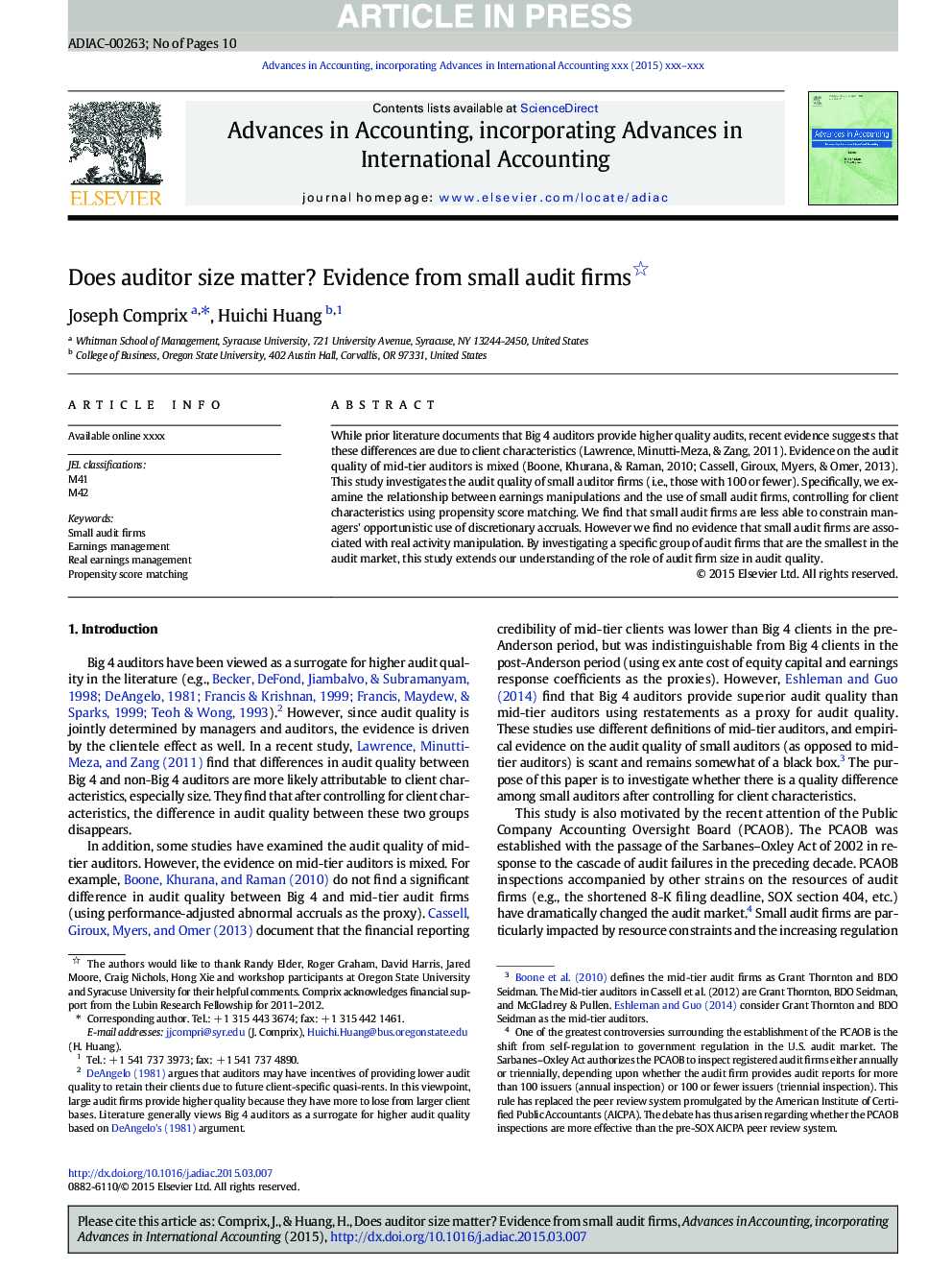| Article ID | Journal | Published Year | Pages | File Type |
|---|---|---|---|---|
| 7340168 | Advances in Accounting | 2015 | 10 Pages |
Abstract
While prior literature documents that Big 4 auditors provide higher quality audits, recent evidence suggests that these differences are due to client characteristics (Lawrence, Minutti-Meza, & Zang, 2011). Evidence on the audit quality of mid-tier auditors is mixed (Boone, Khurana, & Raman, 2010; Cassell, Giroux, Myers, & Omer, 2013). This study investigates the audit quality of small auditor firms (i.e., those with 100 or fewer). Specifically, we examine the relationship between earnings manipulations and the use of small audit firms, controlling for client characteristics using propensity score matching. We find that small audit firms are less able to constrain managers' opportunistic use of discretionary accruals. However we find no evidence that small audit firms are associated with real activity manipulation. By investigating a specific group of audit firms that are the smallest in the audit market, this study extends our understanding of the role of audit firm size in audit quality.
Related Topics
Social Sciences and Humanities
Business, Management and Accounting
Accounting
Authors
Joseph Comprix, Huichi Huang,
